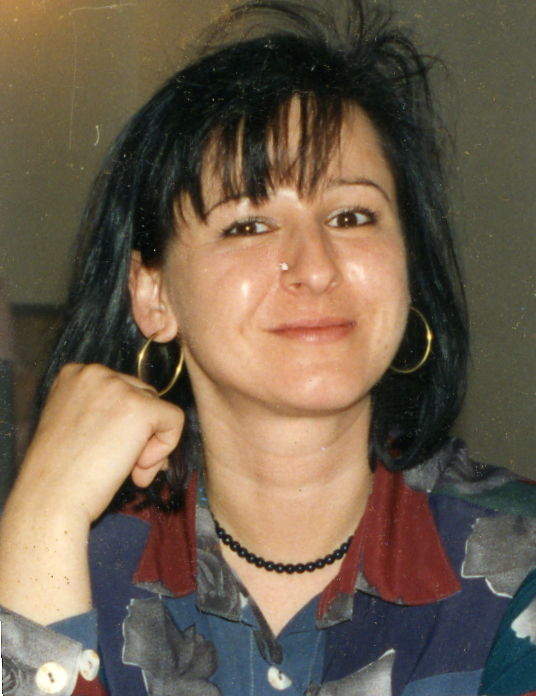 |
Traude Müllauer-Seichter Universidad Nacional de Educación a Distancia (UNED), Dpto. Antropología Social y Cultural, Despacho 319 Edificio de Humanidades Paseo Senda del Rey, 7 28040 Madrid wmullauer@fsof.uned.es
|
|
Education and profesional experience: I was born in Vienna, Austria. I studied Social Anthropology and Hispanic Studies at the University of Vienna. Later on, as a central theme of my PHd dissertation, I did research on the production of Spanish scientific texts concerning the Bubis of Bioko (formally Fernando Poó, Equatorial Guinea). I doctorated in 1995, University of Vienna, Institute of Social and Cultural Anthropology. For the following years I continued working in this academic institution thanks to a postdoctoral research contract. I investigated the evolution of the discipline of Anthropology in Spain (Urban Anthropology, Oral History, etc). Since 1999, my interests have concentrated on Urban Anthropology. From 2000 to 2002, I belonged to the Dpt. of Spanish and America Anthropology in the Spanish Scientific Research High Council (CSIC) as a postdoctoral researcher granted by the Comunidad Autónoma de Madrid. During this time I did field work on green public space and park uses among urban citizens in Madrid. It is from then that I established a strong intellectual and research relationship with Dr. Matilde Fernandez Montes and Dr Margarita del Olmo. Since 2002, I became part of the academic staff of the Social and Cultural Anthropology (UNED, Madrid) as an Assistant Professor, teaching “History and Theories in Anthropology”. My current investigations focus on citizens’ involvement and decision making in the transformation of urban public space. Frequently excluded in this type of research, My approach pays attention also to children, adolescents, and young people, as important social actors in the public space arena of parks and social green spaces. Since 2004 I have started a comparative approach on this topic between European and Latinoamerican urban experiences in this domain. Fieldwork is being carried in cities of Perú and Colombia, paying attention to inequality, social exclusion and racism, as variables that may explain differences in processes of decision making in urban transformations through public urban space and urban social green places and use. Keywords of Investigation: History of Anthropology, Urban Anthropology, citizen’s participation, public space, Urban Social Green, children and young people, social inequality and inequality, racism. Recent Publications: Müllauer-Seichter, W. El espacio público en Madrid: Usos de siempre y usos importados… Disfrute para todos? En Diálogos 12, Boletín Informático. Año V, Nr. 12. Madrid, Área de Gobierno de Familia y Servicios Sociales. 2009. Müllauer-Seichter, W. La intervención ciudadana en la transformación de las espacios públicos. En Revista de Dialectología y Tradiciones Populares, , Vol LXII, 1. 168 – 185. Madrid. 2007 . Müllauer-Seichter, W. El impacto de la inmigración en torno al "Verde Social": Breve relato de “nuevos usos” de los parques de Madrid. Historial de los encuentros de ecuatorianos y colombianos en la Casa de Campo, Madrid. En VI Jornadas Internacionales de Educación de No Violencia (DVD). UNED, Foro Humanista de Educación y Mundo sin Guerras y Sin Violencia. Madrid. 2006. Müllauer-Seichter, W. “El espacio común de la ciudad”. (publicación en francés) En: Revista Secolul 21, “Madrid – metropole contemporaine”, UNESCO,. 75 – 81. Bruselas. 2006. Müllauer-Seichter, W. Segregación del espacio público: Territorio público versus intereses privados: un análisis de usos en la Casa de Campo de Madrid. En Instituto de Estudios Madrileños, Vol. XLIV. 585 – 611. Madrid. 2004. Müllauer-Seichter, W. Espacio Público y Ssegregación Social En CD-Rom Congreso Entre lecturas y desafíos Pontificia Universidad Católica del Perú, Lima y ALTERNATIVE. Centro de Investigación Social y Educación Popular. Lima. 2005. Müllauer-Seichter, W. ¿Que es el parque? Territorio físico y interpretación según la memoria colectiva En Actas de las II. Jornadas de Antropología Urbana ZAINAK: "Las Culturas de la Ciudad", 23, Vol. 2003. 529 – 544. Donostia. 2004. Müllauer-Seichter, W. Rendimiento y utilidad de técnicas prestadas de la geografía humana: Trabajando la percepción individual. En Revista de Dialectología y Tradiciones Populares. Nr. 58. 47 – 70. Madrid. 2003. Müllauer-Seichter, W. Discurso y cultura: La Legibilidad del verde urbano. La Casa de Campo. Interpretaciones individuales del territorio físico. En Actas del Congreso, F.A.A.E.E, 2003. F.A.A.E.E. Barcelona. 2003. Müllauer-Seichter, W. Segregación del espacio verde urbano según un análisis de género. En Instituto de Estudios Madrileños. Vol. XLII. 175 -195.Madrid, 2002 Müllauer-Seichter, W. El uso del espacio verde urbano: entre lo privado y lo público, estética y rendimiento económico. La Casa de Campo, parque de Madrid. En Revista de Dialectología y Tradiciones Populares. Vol. LVI. 143 -181.Madrid. 2001.
Dedication within the Project: Beyond fieldwork, results and knowledge will be presented of national and international seminars and congresses as well as published in usual professional organs of divulgation in Spanish, English and German. For the last year of this project I will prepare with Dr. Jennifer Lucko an International Seminar, taking place in Madrid, and, further on, we think in a publication of the papers presented within the seminar. For higher divulgation, this publication will be in English. |
|